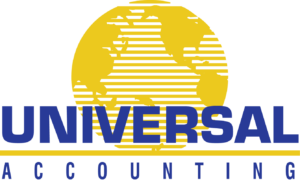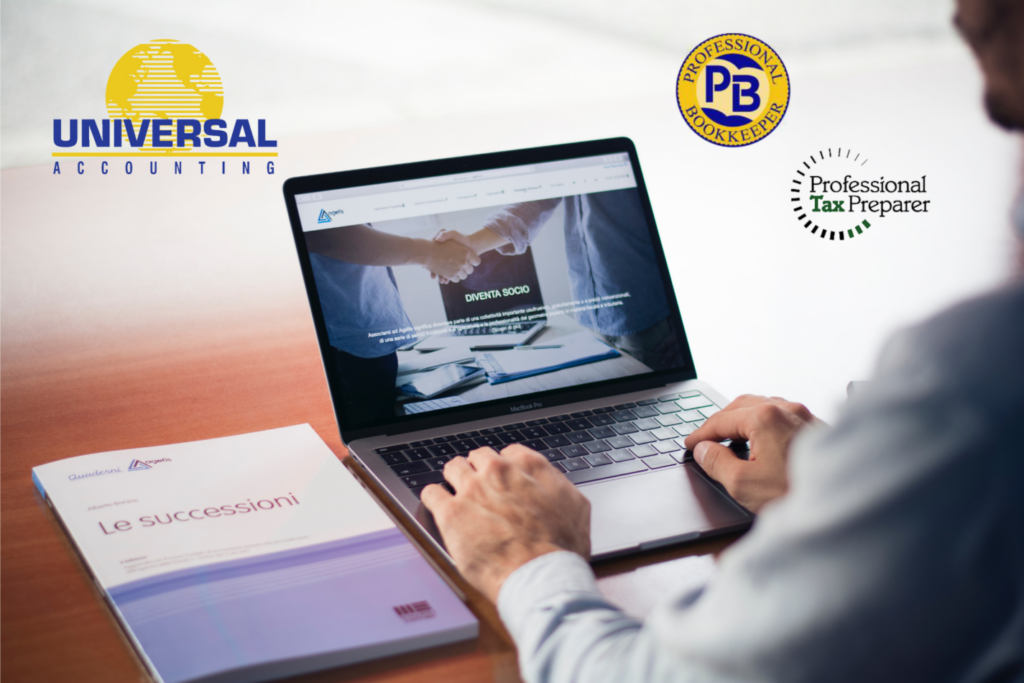Accounting firms are among the most profitable small businesses in America, according to Thomson Ruetuers, making starting an accounting business very attractive option for entrepreneurs of all levels of accounting experience.
But, like with starting any business, establishing an accounting firm requires a lot of sweat equity and patience. And it brings heaps of questions. Many of which can only be answered with, “It depends.”
The good news is Universal Accounting Center offers solutions to nearly every question you may see as obstacles before you can start an accounting business, though certain quirks of the industry can only be learned by working directly with clients. Let’s dive in.
Is starting an accounting business right for you?
Before we approach the somewhat intimidating list of all the tasks needed to start an accounting business, remember the nuts and bolts lifestyle improvements that operating your own firm can have. There’s no price you can put on the freedom of being your own boss. Hours, work location, the amount of work you take on — it’s all up to you.
Accountants and other professionals are increasingly choosing to work independently rather than as employees, per Maryville University, but accounting professional are in high demand right now, period. Accounting Today’s survey of its top 100 firms in the country found that hiring is the the most difficult challenge large firms are facing, so there are great employment opportunities for those with training in bookkeeping and tax preparation. That being said, working for a big firm isn’t for everybody.
If you want to start an accounting business, you’ll need to take some time to ponder on what exactly you’re hoping to achieve in the industry. Do you want to work alone and directly serve a small pool of clients? Are you envisioning yourself hiring employees and running a larger firm? There are a number of services you can provide clients depending on your level of expertise (more on this later). It comes down to what you feel you have the time, skill and passion to handle.
What do I need to get started?
Just like with any other business, you need to write a business plan. Reuters Thomson recommends that you start by figuring out your purpose, goal, and market. This will influence many other decisions, including the function of the services you provide, whether you want a physical or virtual location, your target demographic, and the location of your business. Universal Accounting Center offers a turnkey model for developing a business plan for free. It’s a great place to start.
You don’t necessarily need to be a Certified Public Accountant to provide accounting services, but you will need training on the basics of accounting. An accounting firm can do almost everything a CPA firm can do with one exception – audits and assurance services, according to Reuters Thomson. However, if you are looking to focus on the multitude of other services accounting firms provide, it’s likely not a necessary credential to start. Here’s what Accounting Today’s Hugh Duffy recommends as far as obtaining training:
“To effectively market your services and price properly, you should enroll in a practice marketing and development program to learn marketing, pricing, selling and practice management. You should also be fluent with QuickBooks, which is how many small businesses manage their bookkeeping function.”
Universal Accounting Center’s online video courses are designed to train you to work directly with small businesses — be that as a Professional Bookkeeper, a Professional Tax Preparer, or QuickBooks Specialist.
As Duffy mentioned, enrolling in a development program like Universal Accounting Center will give you a huge leg up when it comes to the more squishy areas of running an accounting business, like pricing and marketing your services. Universal Accounting’s coaches have helped professionals start an accounting business since 1979 and work one on one with entrepreneurs to answer their questions.
You’ll also need to obtain an Employer Identification Number (EIN) and Tax ID number through the IRS website if you’re planning to hire employees. Deciding on the legal structure of your business (S-Corp, L-Corp, LLC, Partnership, LLP) is an important step as well (if you’re going it alone you’ll most likely pay yourself as an employee through an S-corp) and looking at business insurance isn’t a bad idea either.
Many accountants start their business by picking up clients on the side, Duffy notes, giving them time to assess whether they’d enjoy starting a full-time practice and lowering their risk.
Start-up costs can range from $2,500 to $25,000, per Thomson Reuters, depending largely on whether you want to work from a home office or in a brick and mortar establishment. But that’s not the only investment you’ll be making.
“New businesses require sweat equity, so this move has to be at the right time in your life,” Duffy writes. “Nearly all practices are cash flow negative during the startup and development phase, so you need to have cash on hand to cover household expenses and retain insurance coverage.”
From the experts
As UAC President Roger Knecht explains in this video, starting a successful accounting business comes down to careful planning and being able to get the support you need when you’re confused or frustrated:
Conclusion
Universal Accounting School has helped accounting professionals become entrepreneurs since 1979 with its turnkey process for starting an accounting business. Start on the path to achieving your lifestyle goals with Universal Accounting’s courses today by calling 877-801-8080. Or, set a time to get your questions answered when it’s best for you.
Share this post: on Twitter on Facebook on Google+





